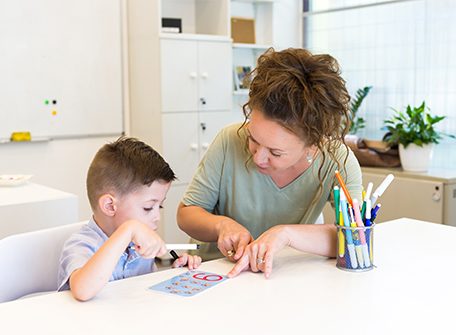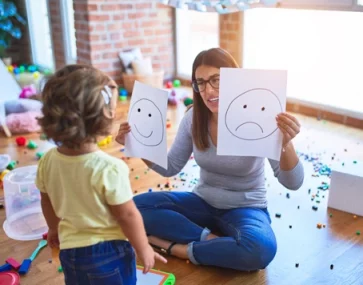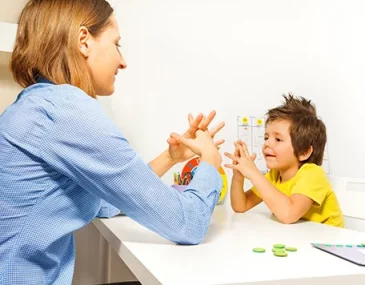As parents, we all want our children to be successful, happy, and healthy. Unfortunately, many of our children struggle with behavior and emotional regulation, and typical strategies of discipline may not always be effective. In these cases, many parents are turning to Applied Behavior Analysis (ABA) therapy for help. ABA is a type of behavior modification therapy that has been used for decades to help children with autism and other developmental delays learn skills and modify behavior. It is a particularly effective treatment for helping children learn to manage their emotions.
ABA therapy typically begins with identifying a child’s specific problem areas, such as difficulty managing emotions or difficulty following directions. The therapist will then develop a plan to address these issues. The ABA therapy plan may include teaching the child new skills, such as how to identify and express their emotions, how to problem solve, and how to self-regulate. The therapist will then use a variety of techniques to reinforce the desired behaviors.
One of the most effective techniques used in ABA therapy is teaching emotions. Teaching emotions in pediatric ABA therapy is an effective way to help children understand and regulate their emotions, which can lead to improved behavior. Through this type of therapy, children learn to identify and express their feelings, understand the consequences of their actions, and practice self-regulation. The therapist will typically teach the child to recognize different emotions, understand how they feel, and learn how to use strategies to cope with difficult feelings.
One of the most important aspects of teaching emotions in ABA therapy is the reinforcement of positive behaviors. By providing rewards and praise for appropriate emotional responses, the therapist is helping the child to learn that emotional regulation is a positive behavior. This type of reinforcement encourages the child to continue to practice the skills they are learning.
ABA therapy is also an effective way to help children learn new skills and modify their behavior. Through this type of therapy, children can learn a variety of skills, such as communication, problem-solving, and socialization. The therapist will typically use a variety of techniques to reinforce these skills, such as rewards and praise. This type of reinforcement can help the child to learn the desired behaviors and to practice them in real-life situations.
ABA therapy is an effective way to help children with emotional and behavioral problems. Through this type of therapy, children can learn new skills, modify their behavior, and learn how to manage their emotions. Teaching emotions in pediatric ABA therapy is an effective way to help children understand and regulate their emotions, leading to improved behavior and skills development.
At Hope AMC, we provide ABA therapy in Dubai to children with a wide range of individual needs and issues. Our team of experienced clinicians is committed to meeting the needs of every child, and we use a variety of strategies and techniques to ensure that all of their challenges are addressed.
When it comes to teaching emotions, our therapists use a variety of tools to help children understand and express their feelings. We use play-based activities and visual tools to help children recognize and name their emotions. We also use social stories, role-playing, and other activities to help children understand how their emotions are affecting their behavior and how they can adjust their behavior to better manage their emotions.
In addition to positive reinforcement and rewards, we use strategies to reduce or eliminate negative behavior. Each child is given individualized goals to ensure motivation and progress tracking.
At Hope AMC, we understand the importance of providing quality ABA therapy in Dubai for children with developmental disabilities. Our experienced team is committed to providing a safe and supportive environment where children can learn, grow, and develop the skills they need to reach their full potential. If you would like to learn more about our ABA therapy services and how we can help your child, please don’t hesitate to contact us.






